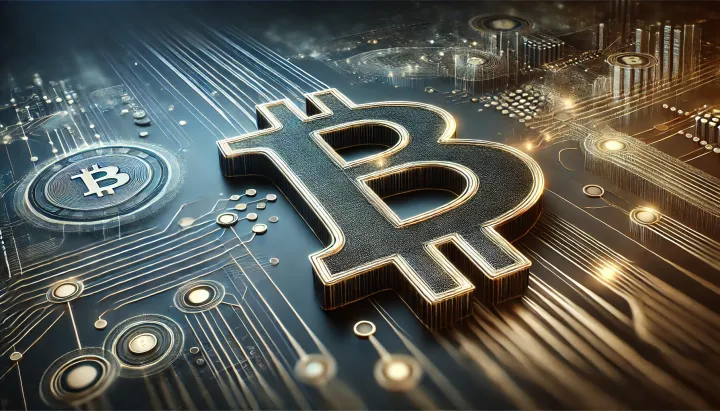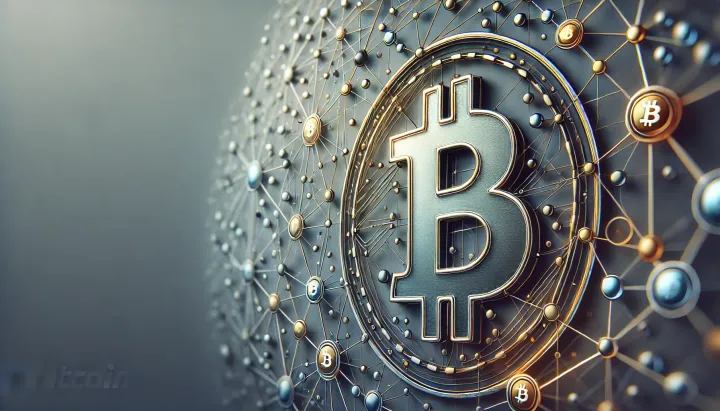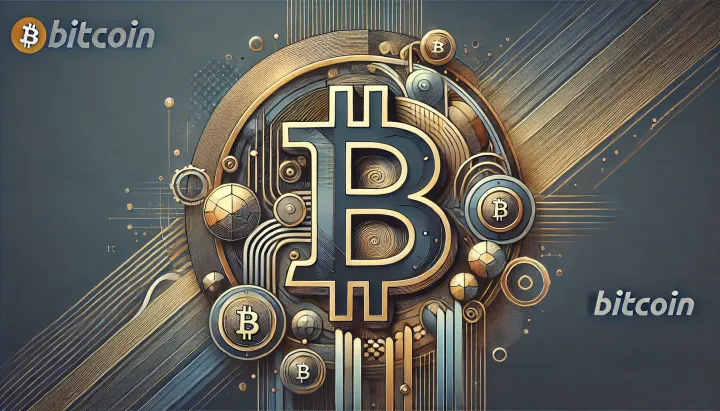Bitcoin Stability and Sovereignty in an Unstable World
The August 15, 2022 episode of the Closing the Loop podcast features Gigi and host John Vallis discussing the fundamental role Bitcoin plays in offering stability amid global economic instability and authoritarianism.

Briefing Notes
My 'briefing notes' summarize the content of podcast episodes; they do not reflect my own views. If you have comments about this briefing note, please leave a comment below (requires signing up for a free blog subscription). Note that some of the podcast episodes I summarize may be sponsored: don't trust, verify, if the information you are looking for is to be used for decision-making. Check the broadcast dates too - I constantly summarize older podcast episodes that provide valuable context for current discussions.
Summary
The August 15, 2022 episode of the Closing the Loop podcast features Gigi and host John Vallis exploring the role Bitcoin plays in offering stability amidst global financial instability and authoritarian regimes. The conversation emphasizes Bitcoin's utility beyond speculation, including its role in providing financial sovereignty, especially in oppressed regions. Key topics include Bitcoin’s potential to stabilize energy grids, its human rights implications, and the ongoing regulatory challenges it faces globally.

Take-Home Messages
- Bitcoin offers stability where fiat currencies are collapsing, particularly in regions facing economic crises.
- Bitcoin provides financial sovereignty, allowing individuals in authoritarian regimes to access and protect their wealth.
- Decentralized protocols like Bitcoin are immune to deplatforming, making them resilient compared to centralized platforms like Facebook or Google.
- Education about Bitcoin’s utility—beyond speculation—is crucial, especially in Western regions where misconceptions prevail.
- Bitcoin mining can support renewable energy efforts by stabilizing grids and balancing supply-demand dynamics.
Overview
Gigi begins the podcast by outlining Bitcoin’s stability as a decentralized financial protocol. Unlike fiat currencies, which are vulnerable to manipulation and devaluation, Bitcoin provides a predictable and secure method for storing and transferring wealth. This is particularly critical for individuals in authoritarian regimes, where financial repression and state control over banking systems limit access to personal savings and investments. Gigi argues that Bitcoin’s ability to bypass these controls makes it a lifeline for those in politically unstable regions.
The discussion then pivots to the distinction between protocols like Bitcoin and platforms such as Facebook or Google. Gigi highlights how Bitcoin’s decentralized nature prevents censorship and deplatforming, a key concern for individuals at risk of state repression. He explains that as a protocol, Bitcoin offers more stability and resilience than any platform controlled by a single entity.
Energy usage is another focal point of the discussion. Gigi challenges common misconceptions about Bitcoin’s environmental impact, suggesting that Bitcoin mining, when integrated with renewable energy sources, can help stabilize energy grids. He notes that Bitcoin’s flexibility in adjusting mining power allows it to absorb excess energy during low-demand periods, making it a potential ally for renewable energy projects.
Finally, Gigi emphasizes the need for broader education on Bitcoin, particularly in the Western world, where it is often seen as a speculative asset. He argues that once people understand Bitcoin’s practical applications, particularly for financial sovereignty and energy use, its adoption will accelerate globally.
Stakeholder Perspectives
- Regulators: Face a dilemma in trying to regulate Bitcoin without undermining its decentralized nature. Striking a balance between oversight and innovation will be key to future policy.
- Energy Sector: Could see significant benefits from Bitcoin’s ability to stabilize renewable energy grids, but misconceptions about its environmental impact still pose a challenge.
- Investors: View Bitcoin as a hedge against economic instability, but face regulatory risks and public misconceptions about volatility and environmental damage.
- Human Rights Groups: Recognize Bitcoin as a vital tool for protecting financial sovereignty in authoritarian regimes, where traditional banking is restricted.
- Public: Largely misunderstands Bitcoin’s true potential, focusing on its price volatility and energy use rather than its role in stabilizing economies and protecting human rights.
Implications
Bitcoin’s integration into renewable energy projects can transform the way energy grids operate, providing stability and balancing supply-demand dynamics in a way that traditional systems cannot. Policymakers and energy stakeholders must recognize Bitcoin’s utility in this space to craft regulations that harness these benefits rather than limit them through blanket restrictions on mining.
In terms of financial sovereignty, Bitcoin’s decentralized nature offers a powerful tool for individuals in authoritarian regimes or economically unstable regions. By bypassing traditional banking systems and governmental controls, Bitcoin empowers individuals to protect and transfer wealth without fear of censorship or devaluation. This could lead to a future where financial systems are more inclusive, but it also raises concerns about how governments will respond to losing control over their monetary systems.
Future Outlook
On the financial side, Bitcoin’s ability to offer financial sovereignty will likely drive its adoption in regions facing economic instability or authoritarian governance. As more people realize the benefits of a decentralized financial system, Bitcoin may increasingly serve as a hedge against fiat currency collapse and state control. Yet, regulatory crackdowns remain a looming threat, especially as governments seek to regain control over decentralized financial technologies.
Information Gaps
- How does Bitcoin adoption affect the ability of individuals in authoritarian regimes to preserve wealth and access financial resources? This question is critical for understanding Bitcoin’s role in protecting financial sovereignty in repressive political environments. Addressing this gap could lead to strategies for driving adoption in vulnerable regions.
- What are the barriers to widespread Bitcoin adoption in regions facing authoritarian control and economic instability? Identifying and overcoming these barriers is key to extending Bitcoin’s benefits to those who need it most. Further research would help develop frameworks for adoption in such areas.
- How can Bitcoin’s energy consumption be better communicated to counter the misconception that it is environmentally destructive? Public perception is a major obstacle to wider Bitcoin adoption. Answering this question could lead to more effective communication strategies and informed regulatory policies.
- What legal frameworks could balance the need for regulatory oversight without stifling Bitcoin’s decentralized nature? As regulatory pressures increase, it is important to develop frameworks that safeguard Bitcoin’s decentralized principles while addressing legal concerns.
- How can mobile technology be leveraged to increase Bitcoin accessibility in regions with limited traditional banking options? Mobile technology offers a unique avenue for expanding Bitcoin’s reach, especially in areas where banking infrastructure is weak or nonexistent. Exploring this gap could unlock new opportunities for financial inclusion.
Broader Implications
Bitcoin as Financial Sovereignty
Bitcoin's role as a decentralized currency offers a lifeline to individuals in regions facing economic collapse or authoritarian control. As fiat currencies become more unstable globally, Bitcoin will increasingly serve as a hedge against devaluation, empowering people with financial independence. This shift has the potential to disrupt traditional banking systems, especially as individuals and communities seek alternatives to centralized financial institutions.
Decentralized Protocols and Censorship Resistance
The censorship resistance offered by Bitcoin as a decentralized protocol is a critical factor in protecting freedom of speech and financial autonomy. As global governance structures tighten their control over digital platforms, Bitcoin’s architecture becomes more valuable for individuals seeking to bypass state-imposed financial restrictions. This dynamic could spur governments to introduce more aggressive measures to control access to decentralized technologies, posing both challenges and opportunities for Bitcoin adoption.
Public Perception and the Education Gap
One of the most significant barriers to broader Bitcoin adoption is public misunderstanding, especially regarding Bitcoin’s price volatility and energy consumption. Correcting these misconceptions is vital, not only for increasing adoption but for shaping future policy decisions. Widespread educational initiatives focusing on Bitcoin’s practical applications, financial sovereignty, and energy use will be essential for building long-term trust and support among the general public and policymakers alike.



Comments ()